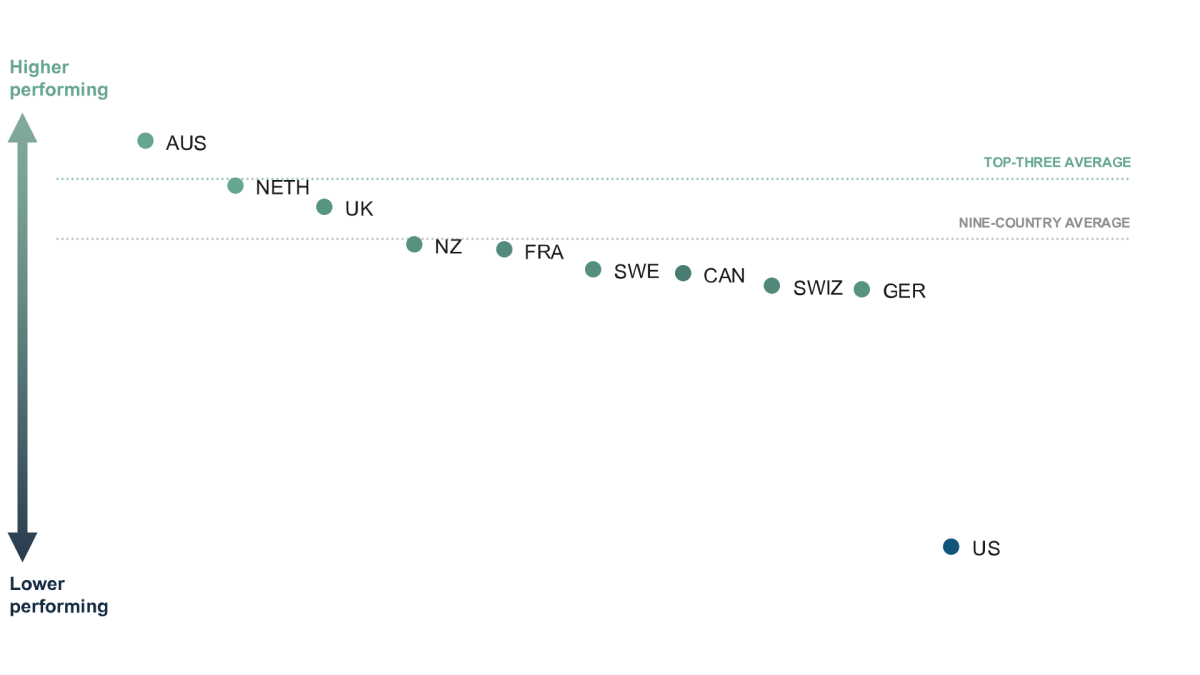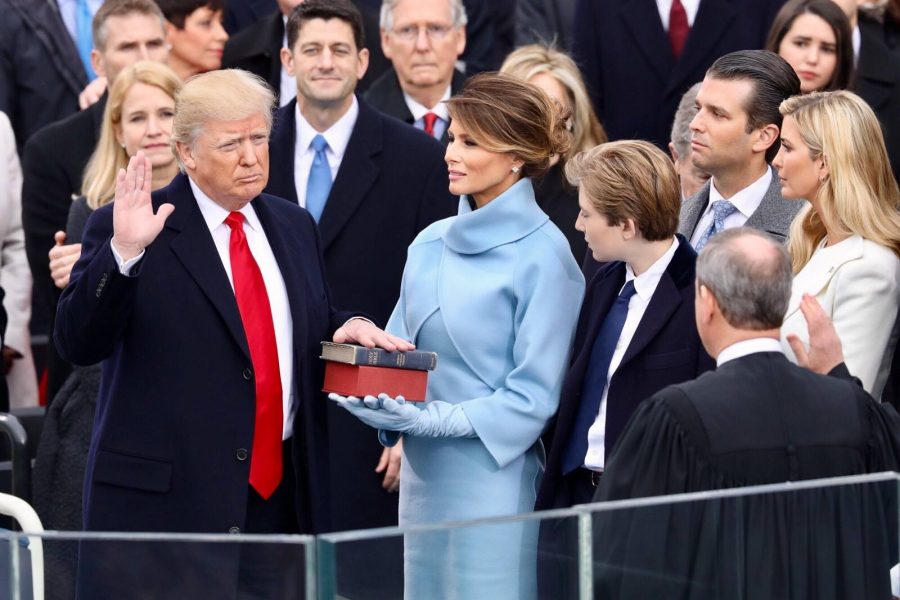Students reflect on Obama’s presidency, Trump’s victory
Wikimedia Commons (Public Domain)
Donald Trump is sworn in as the 45th President of the United States on Jan. 20, 2017, while his wife, Melania, three of his children, and various government officials look on.
February 3, 2017
The morning of Nov. 9, 2016 was a time of mixed emotions. Some students rejoiced at the arrival of a new administration, while others wandered dismally through the hallways, cursing the Electoral College. Still, many others were overwhelmingly relieved that the 2016 presidential election, a race characterized by scandals and character assassinations, was finally over.
“I was really shocked,” said senior Robert DiMuccio. DiMuccio, who had worked at the polls during election day, didn’t find out the news of Trump’s win until the following morning.
Similarly, senior Matthew Bonner described his mood as “overwhelmed” and “flabbergasted” upon hearing the election news.
There’s no doubt about it – Trump’s victory surprised many Americans. Throughout the 2016 election, he continually defied the expectations of the media – and perhaps the public – through a string of successes, triumphing in the Electoral College despite his failure to win a plurality of the popular vote. Various people have speculated on the causes of his win, citing reasons such as a low voter turnout, white male resentment, and a backlash against political correctness.
Mr. Trump has been no stranger to controversy. Some praise his brazen honesty and emotional appeal to voters dissatisfied with the Obama administration. But he’s also been the epicenter of numerous scandals, including his lewd comments about women, various allegations of sexual assault, his failure to release his tax returns, several lawsuits against Trump University, and his threats to jeopardize U.S. relations with China after calling the “One China” policy into question.
Regarding their preference among the candidates, NKHS students’ opinions proved to be diverse. Some students, such as senior Hailey Cedor, voiced their support for Clinton. “Her policies aligned most with what I believe out of the available people,” Cedor said. More importantly, Cedor said, she “didn’t want Donald Trump” to win the presidency. When asked which of Trump’s policies concerned her the most, Cedor replied, “most of them.”
Junior Lila Bovenzi, a former Bernie Sanders supporter who sided with Hillary after Sanders’s loss in the Democratic Party’s primary election, said that Clinton “was really qualified” and “stood for progress.”
Bovenzi called into question the Trump supporters who praise Trump’s affinity for business. “One of the main criticisms of Hillary is that she’s in with big businesses, but so is Trump,” Bovenzi said. “People like Trump because they think he’s just like them, but he’s the root of the problem because he’s involved with big business.”
Mr. Trump, however, has no shortage of supporters. Although DiMuccio does not self-identify as a Trump supporter, he pointed out the positive aspects of a Trump presidency, mentioning how a good relationship with Russia would be beneficial to America. “I feel like we’re always at odds with Russia,” he said. “We need to compromise with them….they’re not [so] different from us.” DiMuccio also supports tough immigration policies, although he thinks Trump may be a little extreme on immigration issues.
Other students, like Bonner, found that neither major party nominee truly appealed to them.
Bonner supported Bernie Sanders during the primaries. “I thought he would actually be able to change stuff and be able to [help] the middle class,” Bonner said. “It was [probably] wishful thinking,” he added, because the reforms that Sanders hoped to enact “were never actually going to happen without major changes in America itself.”
During the general election, Bonner would have chosen Clinton if he had been old enough to vote because he was concerned about Trump’s “irrationality and impulsive behavior when it comes to responding to other people’s criticism.”
As America enters into a new era, the nation is now able to look back on the successes and failures of the Obama administration. Obama’s presidency was marked by several significant events, including the passage of the Affordable Care Act, the killing of Osama Bin Laden, and the appointment of new Supreme Court Justices, among others.
Many students criticize Obama for not following through on certain campaign promises. “[Obama] was very critical of George Bush during his campaign, but he kept Bush’s tax cuts [for wealthy people],” DiMuccio said. “These tax cuts are the foundation for our economic frustration. There are a small amount of wealthy people on the top, [while] you have a middle class that is dying down.”
Bonner has a more favorable opinion of Obama. “I think he did a good job with lowering the unemployment rate,” he said. “[He was able] to get things done even though, for most of his presidency, Congress was controlled by Republicans.” In regard to Obama’s numerous executive orders, something he is often criticized for, Bonner said, “He had to [pass executive orders] in order to accomplish anything.”
Now that Obama’s presidency has ended and the first hundred days of Trump’s presidency are now underway, many people view the next four years with uncertainty. But with each transfer of presidential power in the past, American democracy has consistently proven itself to be strong and resilient.











